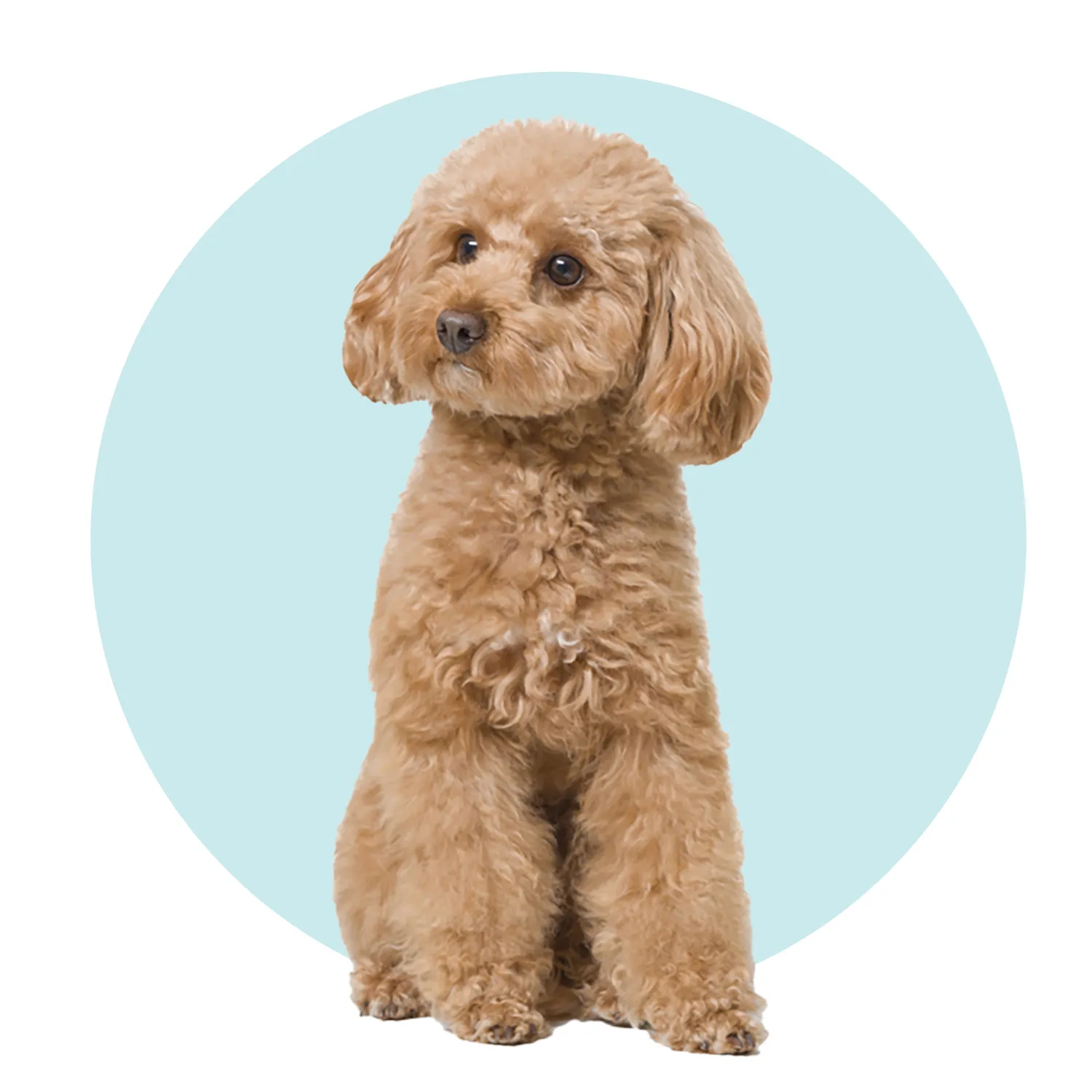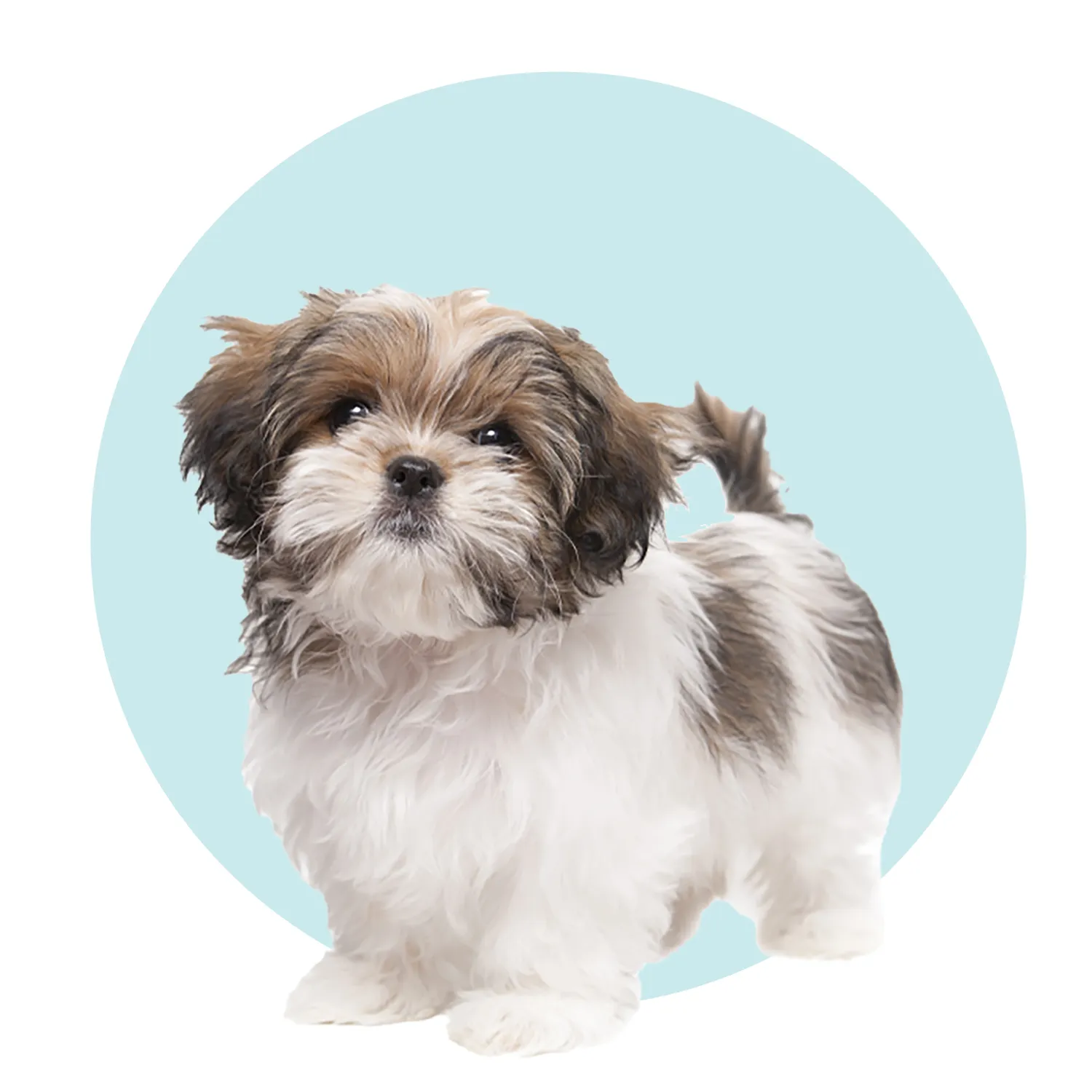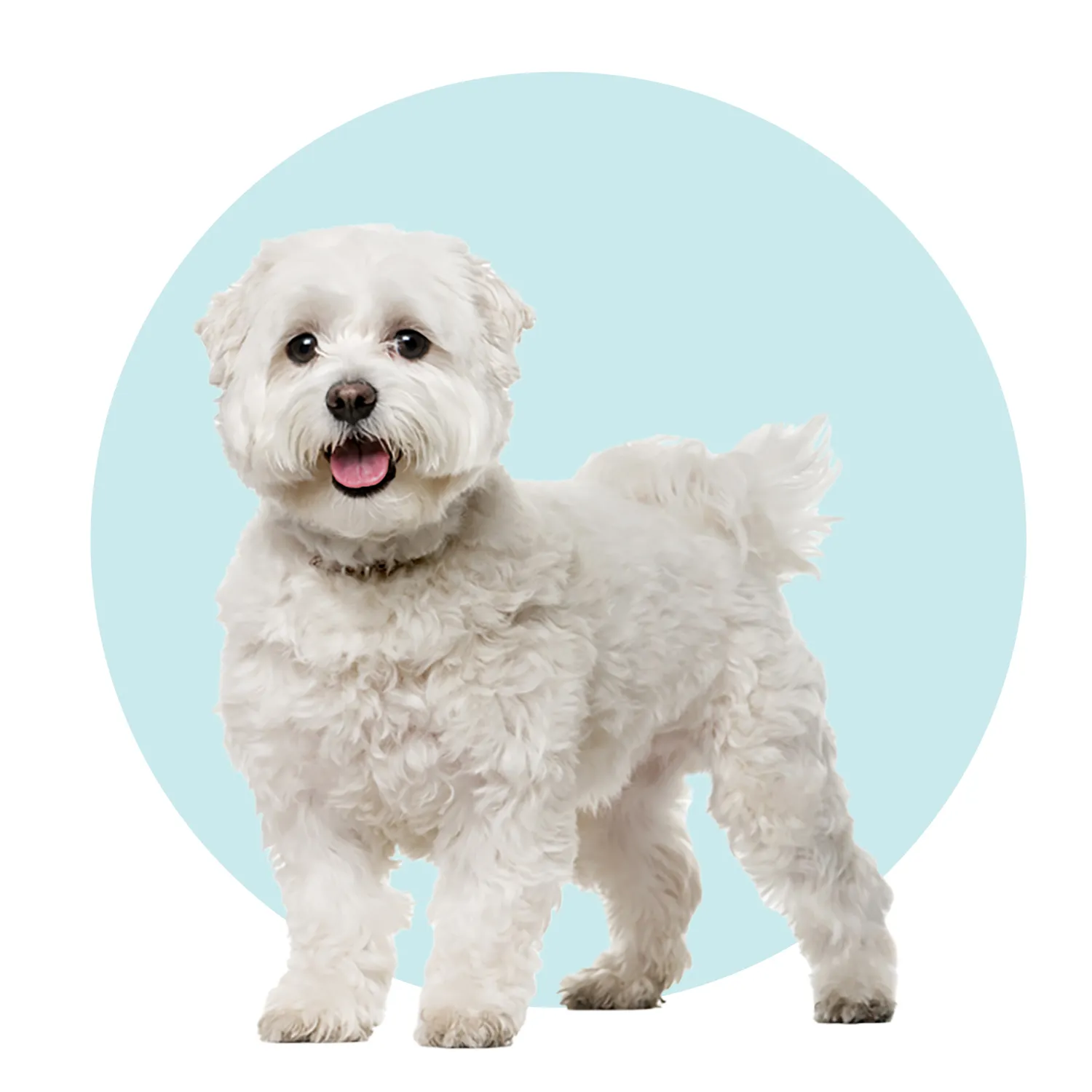Bringing a dog into your home can enrich your golden years with unparalleled companionship, joy, and even health benefits. For many seniors, however, concerns about allergies can stand in the way of this wonderful experience. The good news is that numerous delightful hypoallergenic dog breeds exist, offering low-shedding coats that produce fewer allergens, making them ideal choices for older adults sensitive to dander. This comprehensive guide, from the experts at Dog Care Story, will help you navigate the world of canine companions to find the Best Hypoallergenic Dog For Seniors, perfectly suited to your lifestyle and health needs.
Understanding Hypoallergenic Dogs and Senior Needs
The term “hypoallergenic” refers to dog breeds that are less likely to trigger allergic reactions in humans. These breeds typically shed very little hair or have hair that traps dander, preventing it from spreading into the environment. For seniors, choosing a hypoallergenic dog offers several advantages beyond allergy relief, including a cleaner home environment with less loose fur. The presence of a loving pet can also significantly boost a senior’s mental and physical well-being, providing companionship, encouraging gentle activity, and reducing feelings of loneliness. While finding a companion, you might also consider exploring options such as best small breed dogs for seniors or even small dog breeds for seniors that often align with hypoallergenic qualities.
Key Factors When Choosing a Hypoallergenic Dog for Seniors
Selecting the ideal furry friend involves more than just their hypoallergenic coat. Seniors have unique needs and lifestyles that require careful consideration.
- Energy Level: For many seniors, a dog with a moderate to low energy level is ideal. This ensures that their exercise needs can be met with gentle walks and indoor playtime, without becoming overwhelming. High-energy breeds, even if hypoallergenic, might be too demanding.
- Size: Smaller dogs are generally more manageable for seniors. They are easier to handle on a leash, lift if necessary, and they adapt well to smaller living spaces like apartments. While larger hypoallergenic breeds exist, their strength and space requirements might be a concern for some.
- Grooming Needs: Ironically, many hypoallergenic dogs require more regular grooming due to their non-shedding coats which can mat and tangle easily. Seniors should consider if they are able to commit to regular brushing and professional grooming appointments, or if they have support to assist with these tasks.
- Temperament: A calm, affectionate, and patient temperament is paramount. Dogs that are good-natured, tolerant, and eager to please make the best companions for seniors, adapting smoothly to a quieter lifestyle.
- Trainability and Socialization: Choosing a dog that is relatively easy to train can make daily life much smoother. Early socialization helps ensure your dog is comfortable with visitors and new experiences, which is important in any home environment.
- Health Considerations and Lifespan: Researching common health issues for specific breeds is wise. A healthy dog generally means fewer vet visits and less stress. Many smaller hypoallergenic breeds have long lifespans, offering many years of companionship.
Top Hypoallergenic Dog Breeds Perfectly Suited for Seniors
Here are some of the most beloved hypoallergenic dog breeds that shine as companions for seniors, balancing their unique needs with manageable care.
Poodle (Toy or Miniature)
Poodles are celebrated for their intelligence, elegance, and distinct curly, non-shedding coat. The Toy Poodle, typically weighing 4-6 pounds, and the Miniature Poodle, usually 10-15 pounds, are both excellent choices for seniors. Their hypoallergenic coat makes them a top pick for allergy sufferers, effectively trapping dander and reducing airborne allergens.
These breeds are highly trainable and eager to please, making them delightful to live with. Poodles are known for their playful yet calm demeanor indoors, enjoying moderate exercise such as short daily walks and engaging playtime. While their coat demands regular brushing (every 1-2 days) to prevent matting and professional grooming every 4-6 weeks, the benefits of their low-allergen qualities and intelligent companionship often outweigh the grooming commitment for many seniors. They form strong bonds with their owners and are remarkably adaptable to various living situations.
 A small white Toy Poodle dog sits gracefully on a polished wooden floor, looking towards the viewer with bright, intelligent eyes.
A small white Toy Poodle dog sits gracefully on a polished wooden floor, looking towards the viewer with bright, intelligent eyes.
Bichon Frise
The Bichon Frise is an enchanting small dog known for its cheerful disposition and fluffy, white, hypoallergenic coat. Weighing typically 12-18 pounds, Bichons are bundles of joy that love to be at the center of attention. Their coat, similar to that of a Poodle, sheds minimally, making them an excellent choice for seniors with allergies.
Bichons possess a gentle and affectionate temperament, thriving on companionship and cuddles. They are relatively low-energy dogs, content with a few short walks each day and indoor play. While their beautiful powder-puff coat requires consistent daily brushing to prevent mats and regular professional grooming, their delightful personality and allergy-friendly nature make them a wonderful companion for seniors seeking a lively yet manageable pet. They are also known for their adaptability and ability to form deep bonds with their human family.
Shih Tzu
The Shih Tzu, affectionately known as the “lion dog,” is a small, sturdy companion breed recognized for its long, flowing, hypoallergenic coat and charming, outgoing personality. Typically weighing 9-16 pounds, Shih Tzus are perfect for apartment living and seniors who prefer a more relaxed lifestyle. Their low-shedding nature makes them a fantastic option for allergy sufferers, as their hair effectively traps dander.
Shih Tzus are bred purely for companionship, excelling at being affectionate lap dogs. They are generally calm and enjoy short walks and indoor playtime, requiring minimal strenuous exercise. While their luxurious coat is hypoallergenic, it does demand daily brushing to prevent tangles and mats, along with occasional professional trims to keep it manageable. With their friendly demeanor and unwavering loyalty, Shih Tzus are an ideal choice for seniors looking for a devoted, low-allergen companion.
 A small, adorable Shih Tzu dog sits upright on a textured, light-colored rug, looking attentively towards the viewer. Its long, fluffy fur is neatly groomed, showcasing its distinctive breed characteristics.
A small, adorable Shih Tzu dog sits upright on a textured, light-colored rug, looking attentively towards the viewer. Its long, fluffy fur is neatly groomed, showcasing its distinctive breed characteristics.
Yorkshire Terrier
The Yorkshire Terrier, or Yorkie, is a petite yet spirited dog, typically weighing 4-7 pounds, with a long, silky, hypoallergenic coat. Often described as having a “big dog” personality in a small package, Yorkies are loyal and protective companions. Their fine, human-like hair sheds minimally, making them another excellent choice for seniors with allergies.
Yorkies are adaptable to various living situations, thriving in both large homes and small apartments. They have moderate energy levels that can be satisfied with short daily walks and interactive indoor play. While their beautiful coat requires daily brushing to prevent tangles and knots, and regular trimming, many seniors find the grooming routine a rewarding bonding experience. Their intelligence and affectionate nature make them delightful companions who are always ready for a snuggle.
Maltese
The Maltese is a small, aristocratic toy breed known for its stunning pure white, silky, hypoallergenic coat and gentle, affectionate personality. Typically weighing under 7 pounds, the Maltese is one of the oldest toy breeds and has been a cherished companion for centuries. Their long, single coat sheds very little, making them an outstanding option for seniors with allergies.
Maltese dogs are the quintessential lapdog, thriving on human companionship and providing endless affection. They have low energy needs, content with gentle indoor play and short strolls around the block. Despite their glamorous appearance, their grooming is manageable with daily brushing to prevent mats and occasional professional trims. Their sweet nature, tiny size, and hypoallergenic qualities make them a truly wonderful choice for seniors seeking a devoted, low-maintenance, and allergy-friendly companion.
 A small, white Maltese dog with long, silky fur is playfully sitting on a light-colored wooden floor. Its dark eyes and nose stand out against its bright coat, and it looks towards the viewer with an inquisitive expression.
A small, white Maltese dog with long, silky fur is playfully sitting on a light-colored wooden floor. Its dark eyes and nose stand out against its bright coat, and it looks towards the viewer with an inquisitive expression.
Miniature Schnauzer
The Miniature Schnauzer is a robust and intelligent small dog, typically weighing 11-20 pounds, characterized by its distinctive wiry coat, bushy eyebrows, and beard. This breed is considered hypoallergenic due to its minimal shedding and low dander production, making it an excellent choice for allergy-sensitive seniors.
Miniature Schnauzers are known for their alert, spirited, and affectionate personalities. They are highly trainable and eager to learn, making them enjoyable companions. While they possess a moderate energy level, their exercise needs can be met with daily walks and engaging play sessions. Their wiry coat requires regular brushing (2-3 times a week) and professional grooming (stripping or clipping) every 5-8 weeks to maintain its texture and appearance. For seniors who appreciate an intelligent, sturdy, and loyal companion without excessive shedding, the Miniature Schnauzer is a superb choice.
Havanese
The Havanese is the national dog of Cuba and a truly charming small companion breed, weighing 7-13 pounds. They are known for their long, silky, non-shedding double coat, making them another fantastic hypoallergenic option for seniors. Their playful yet gentle nature makes them adaptable and loving family members.
Havanese dogs are incredibly affectionate and thrive on being part of the family activities. They are intelligent and relatively easy to train, often eager to please their owners. Their exercise requirements are moderate, satisfied with daily walks and indoor games. While their beautiful coat needs regular brushing (several times a week) to prevent mats and tangles, and occasional professional trims, the Havanese offers a joyful, low-allergen presence that is perfect for seniors seeking a devoted and engaging companion. If you’re looking to bring a new companion into your life, whether through a breeder or considering an older dog for sale near me, understanding these breeds can help you make an informed decision.
Essential Care and Grooming for Your Senior-Friendly Hypoallergenic Dog
Owning a hypoallergenic dog, especially for seniors, comes with specific care considerations to ensure both the dog’s well-being and the owner’s comfort.
- Daily Routine and Exercise: While hypoallergenic breeds often have moderate to low energy, a consistent daily routine is important. Short, gentle walks adapted to your mobility, coupled with indoor playtime, can keep your dog physically and mentally stimulated without overexertion.
- Specific Grooming Regimes: The non-shedding nature of hypoallergenic coats means they don’t naturally release old hair, which can lead to matting. Regular brushing (daily for long-haired breeds, a few times a week for others) is crucial. Professional grooming every 4-8 weeks is often necessary for clipping and thorough coat care. Additionally, pay attention to ear cleaning (especially for floppy-eared breeds), dental hygiene, and nail trims.
- Nutrition for Older Dogs: As dogs age, their dietary needs change. Consult with your veterinarian to choose a high-quality dog food formulated for their age, size, and activity level to support their overall health and coat condition.
- Regular Vet Check-ups: Regular veterinary visits are essential for preventive care and early detection of any health issues. This is especially important for older dogs, ensuring they maintain a good quality of life.
Important Considerations Before Welcoming Your New Companion
Before making the commitment to a furry friend, a few practical points should be carefully reviewed.
- Financial Planning: Owning a dog involves ongoing costs including food, treats, toys, grooming supplies, regular vet check-ups, and potential emergency medical care. Budgeting for these expenses is crucial to ensure you can provide the best care.
- Pet Insurance: Unexpected vet bills can be a significant financial burden. Pet insurance can help cover a portion of these costs, offering peace of mind. Researching different plans and their coverage options is a smart step.
- Local Regulations: Be aware of any local ordinances regarding pet ownership, such as leash laws, barking regulations, or specific breed restrictions, to ensure a harmonious living situation for you and your dog.
- Considering Adopting an Older Hypoallergenic Dog: Many wonderful older dogs in shelters are hypoallergenic and are already house-trained and past their destructive puppy phase. Adopting an older dog can be a rewarding experience for seniors, providing an immediate calm companion. Explore options to adopt older dog near me or look into senior dogs up for adoption at your local rescues.
Conclusion
Choosing the best hypoallergenic dog for seniors means finding a loving companion that not only brings joy but also aligns with your lifestyle and health needs. From the intelligent Poodle to the cheerful Bichon Frise and the affectionate Shih Tzu, there’s a perfect low-allergen breed waiting to share your life. Remember to consider factors like energy level, size, grooming requirements, and temperament to ensure a harmonious match. The commitment to regular care, including grooming and vet visits, will ensure your hypoallergenic friend remains a healthy and happy member of your family for years to come. With careful consideration, you can welcome a wonderful canine companion into your home, enriching your senior years with unconditional love and friendship. For more expert advice on dog care, explore other articles on Dog Care Story!
References
- American Kennel Club (AKC). (Various breed pages for Poodle, Bichon Frise, Shih Tzu, Yorkshire Terrier, Maltese, Miniature Schnauzer, Havanese).
- Veterinary Medical Associations and reputable pet health resources for general dog care and health information.
